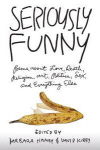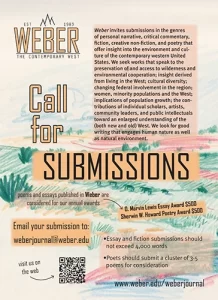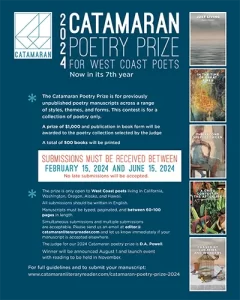Seriously Funny
I was drawn to this collection for two – make that three reasons: I enjoy versifying power-couple Barbara Hamby and David Kirby’s individual work, and I believe good, ‘funny’ poetry is, if not quite as uncommon as some might argue it to be, at least worthy of omnibus analysis and appraisal. I suspected that these two editors, no strangers to humorous writing, would take a broad enough approach to compiling what they deem “seriously funny” poems, and the book’s introduction – a fine read in its own right – bears that out.
I was drawn to this collection for two – make that three reasons: I enjoy versifying power-couple Barbara Hamby and David Kirby’s individual work, and I believe good, ‘funny’ poetry is, if not quite as uncommon as some might argue it to be, at least worthy of omnibus analysis and appraisal. I suspected that these two editors, no strangers to humorous writing, would take a broad enough approach to compiling what they deem “seriously funny” poems, and the book’s introduction – a fine read in its own right – bears that out.
Hamby and Kirby define the type of poems the title promises as “ones that evoke poetry’s timeless concerns but include a comic element as well,” adding ruefully that “a lot of contemporary poetry doesn’t do that.” So the poems sought for Seriously Funny also had to include a contrasting darker underpinning, work that “glow[s] with a starry sheen, but often that’s because there is a black sky behind it.” During the two years Hamby and Kirby assembled Seriously Funny, they’d “set out [to work] with a couple of boxes in the back seat, and whoever wasn’t driving would read to the other. When we found a poem that made both of us think deeply but laugh as well,” it was earmarked for the anthology.
And while they argue that seriously funny poetry can be traced as far back as Beowulf (!), in order to keep the book size manageable they begin with the Beats, “no group more deadly serious about American culture and none that uses humor to better effect,” and end with poems as recent as two years old, from well-known poets as well as newcomers, organized under such broadly designated rubrics as popular culture, the self, sex, love and marriage, family, friends, national identity, work, literature, animals, and metaphysics, culminating with an apocalyptic bunch of end-of-the-world poems.
True to their promethean promise, “there aren’t many subjects that these poems overlook,” and Seriously Funny is stronger for it. Hamby and Kirby are astute editors, so the poems here comprise a wide variety of voices as well, avoiding an aural sameness or staleness that even the funniest of poems would evince if they all sounded exactly alike. The same is true for the work visually on the page, which varies in length and lineation. From a purely aesthetic standpoint, Seriously Funny is well thought out, organized, and assembled.
Part of the joy of this book is discovering its pleasures on your own. If you’re willing to accept its editorial edicts, either because you consider yourself an aficionado of humor in poetry, or are looking to gauge this particular project’s success, you will not be disappointed. Readers can start at the beginning and continue along that way, browse by topic, or choose work randomly – the abiding strength of Seriously Funny is that it can be navigated successfully from any number of angles. If you expect to find the usual suspects, you will and you won’t; Frank O’Hara, Albert Goldbarth, Billy Collins, Denise Duhamel, Tony Hoagland, and James Tate are here, for instance, but again to Hamby and Kirby’s credit, you’ll also find poets not exactly known for being ambassadors of wit or chancellors of chuckles, such as Louise Glück, Andrew Hudgins, Yusef Komunyakaa, Galway Kinnell, and Franz Wright. Their very presence bears out the book’s ambitions and attests to the vision and discernment of the editors.





